History has recorded Muhammad’s sublime and humane dealing with people. His call and teachings were based on amicability and fraternity. Adversity had no place in his conduct.
John Adair
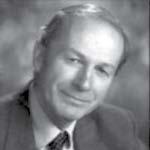
Author of “The Leadership of Muhammad”. Chair of Leadership Studies United Nations System Staff College in Turin
“Leadership glimpsed more than once in the life of the Prophet Muhammad accords well with what we know to be the universal truth about the nature and practice of leadership. You will judge for yourself how close Muhammad comes to this ideal.”
William Montgomery Watt
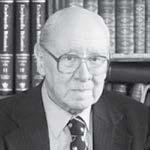
(1909 – 2006) The Scottish historian and Emeritus Professor in Arabic and Islamic Studies at the University of Edinburgh. Author of “ Muhammed at Mecca”, Oxford 1953, p. 52,
“His readiness to undergo persecutions for his beliefs, the high moral character of the men who believed in him and looked up to him as leader, and the greatness of his ultimate achievement – all argue his fundamental integrity. None of the great figures of history is so poorly appreciated in the West as Muhammad.”
Mahatma Gandhi
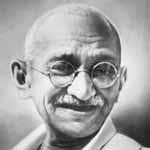
(1869 – 1948) The political and spiritual leader of the Indian independence movement
“I wanted to know the best one who holds today undisputed sway (controlling influence) over the hearts of millions of mankind. I became more than convinced that it was not the sword that won a place for Islam in those days in the scheme of life. It was the rigid simplicity, the utter self-effacement (humbleness) of Prophet Muhammad, the scrupulous regard (extreme care) for his pledges, his intense devotion to his friends and followers, his intrepidity (fearlessness) and his absolute trust in God and in his own mission. When I closed the second volume (of the book about his life) I was sorry that there was not more for me to read about his great life.”
Alphonse de Lamartine

(1790 – 1869) A French poet, writer and politician Histoire De La Turquie, Paris 1854, Vol. Ii, Pp. 276-277,
“Philosopher, orator, apostle, legislator, warrior, conqueror of ideas, restorer of rational dogmas, of a cult without images; the founder of twenty terrestrial empires and of one spiritual empire. That is Muhammad. As regards all standards by which human greatness may be measured, we may well ask, is there any man greater than him?”
William Durant
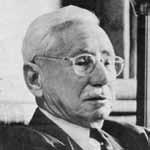
(1885-1981) The American historian, philosopher and author of “The Story of Civilization”, part 4, vol. 4, p. 25,
“His name, meaning, “highly praised,” lent itself well to certain Biblical passages as predicting his advent. Muhammad was never known to write anything himself. His apparent illiteracy did not prevent him from reciting the Quran which is the most famous and eloquent book in the Arabic tongue.”
Johann Wolfgang Von Goethe
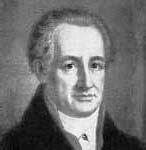
(1749 – 1832) A great European poet، Noten und Abhandlungen zum Weststlichen Dvan, WA I, 7, 32:
“He is a prophet and not a poet and therefore his Quran is to be seen as Divine Law and not as a book of a human being made for education or entertainment.”
Leo Tolstoy
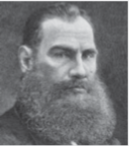
(1828 – 1910) The famous Russian writer and novelist and Author of ”War and Peace”:
“There is no doubt that Prophet Muhammad is one of the greatest reformers who served the social framework profoundly. It suffices him that he led a whole nation to the enlightenment of truth and made it more inclined towards tranquility and peace, and prevented it from shedding blood and giving human sacrifices. He widely opened to his nation the gate to development and civilization. This is a great deed that only a strong man can do and a man like that deserves to be regarded with respect and admiration.”
Thomas Carlyle
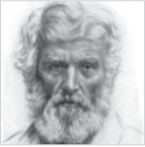
(1795 – 1881) The Scottish historian, philosopher and author of “Heroes and Hero Worship and the Heroic in History”:
“How one man single-handedly, could weld warring tribes and wandering Bedouins into a most powerful and civilized nation in less than two decades.”
Note: Thomas Carlyle made an attempt to draw a picture of the development of human intellect by using historical people as coordinates and accorded the Prophet Muhammad a special place in the book under the chapter title “Hero as a Prophet”. In his work, Carlyle declared his admiration with a passionate championship of Muhammad as a Hegelian agent of reform.
Reverend Reginald Bosworth Smith
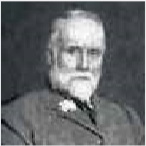
(1839-1908) Author of Mohammad and Mohammedanism, London, 1874, p. 9,
“Head of the state as well as the Church, he was Caesar and Pope in one; but, he was Pope without the Pope’s claims, and Caesar without the legions of Caesar, without a standing army, without a bodyguard, without a palace, without a fixed revenue. If ever any man had the right to say that he ruled by a right Divine, it was Muhammad, for he had all the power without instruments and without its support. He cared not for dressing of power. The simplicity of his private life was in keeping with his public life.”
Maurice Bucaille
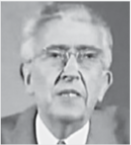
(1920 – 1998) A French medical doctor and a specialist in gastroenterology. A member of the French Society of Egyptology. Author of “The Bible, The Quran and Science”
“Islam teaches that God has given man the faculty of reason and therefore expects man to reason things out objectively and systematically. In view of the state of knowledge in Muhammad’s days, it is inconceivable that the verses of Quran could have been the work of man. A totally objective examination of the Quran in the light of modern knowledge, leads us to recognize the agreement between Quran and science.”